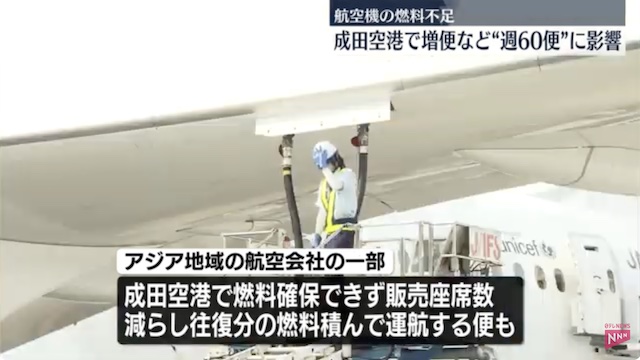TOKYO, Jun 28 (News On Japan) - A shortage of aviation fuel is causing disruptions primarily at regional airports, impacting international flight increases and new routes. This issue has now extended to Narita Airport, where nearly 60 flights per week are affected.

In a press conference on June 27th, Narita International Airport Corporation revealed that six Asian airlines, including those from China, are unable to secure fuel, resulting in 57 flights per week being unable to increase their frequencies or start new routes.
Additionally, some Asian airlines have reduced the number of seats available for sale, opting to carry round-trip fuel to compensate for the fuel shortage at Narita Airport.
In response to the aviation fuel shortage, the government established a joint task force with oil distributors and airlines last week. The problem remains particularly severe at regional airports such as Obihiro Airport in Hokkaido and Hiroshima Airport.
Source: 日テレNEWS















